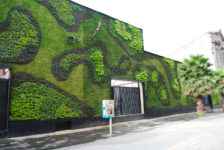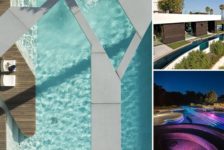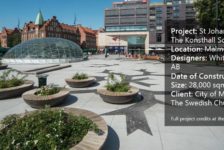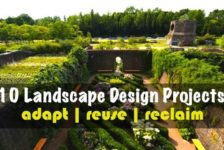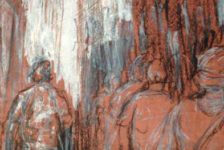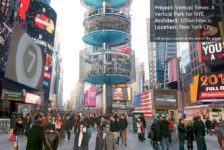AN INTERVIEW WITH ELLEN FETZER
Ellen Fetzer is a dynamic player on the international landscape architecture community scene. In this interview, we talk about how she found the profession, her road trip across Romania, and how she plans to reshape the structure of the traditional university system.
What is your background with regard to Landscape Architecture?
I studied landscape architecture at the University of Kassel. Kassel is located in the centre of Germany and is known for hosting the documenta – a principal art exhibition taking place every fife years. Studying landscape architecture in Kassel is inspiring because of the integration with architecture and urban planning and the strong studio-based teaching. I enjoyed it a lot!
How did you find the profession? What lead you to Landscape Architecture?
I was looking for a profession integrating the sciences, the humanities and engineering with a strong environmental mission. I think landscape architecture is the only profession offering this. I have never regretted my decision.
Tell us a little about your “Across Romania” project.
“Across Romania” was a follow-up of “Berlin-Ankara” and both projects aim at documenting people’s relationships to open spaces. People have a very strong relationship to their open spaces. In particular, to those “everyday” spaces a landscape architect would hardly ever look at. I think we need more awareness of this issue. So we both, Siri Frech and I, tried to find a method for communicating these relationships. “Berlin-Ankara” resulted in a short movie and currently, we are working on the “Across Romania” movie. It is a continuous project and they are being collected under the domain landscape-diary.net.
Here is the Berlin-Ankara trailer:
Was the outcome successful? What did you learn?
Well, I think for the circumstances we were facing (this was a private initiative without particular funding) it was successful. The point is that there is endless material and messages out there but you have to find a way of telling the story. That is the actual challenge and perhaps a new task for landscape architects. For the Romania journey, we are still struggling with the plot but this is how we learn, too.
Do you have any projects planned for the near future?
Romania will be our focus area for the coming years because there is so much transformation going on in this new EU member state. Well, the other theme I am working on is international web-based collaborative teaching in landscape architecture. We were running an urban landscapes seminar completely online during the last term and now we will soon start a follow-up on rural landscapes. The idea behind it is to move towards horizontal universities working across institutional boundaries. Apart from being most stimulating for both staff and students my idea is to make landscape architecture education more accessible across the globe. Access to landscape architecture education is not equal yet.
Tell us about the International Masters in Landscape Architecture (IMLA).
This programme is a collaboration of three landscape architecture schools, two German ones, Nürtingen-Geislingen and Weihenstephan, and a Swiss one, HSR Rapperswil. The three schools started to collaborate in 2001 in order to bring their assets and strengths together. The programme is targeted at international graduates. People mainly join on the basis of a bachelor in landscape architecture but there are also architects and urban planners.
What is your role at the school?
I am mainly in charge of coordinating the programme which is quite demanding because both staff and administration are at three locations. In addition I am in charge of the department’s public relations. Last but not least I am doing a PhD on collaborative web-based teaching and the online seminars I was telling about before are part of this.
What is unique about IMLA and what does it offer that other Universities do not?
I think that the strong emphasis on the four programme mainstays is quite unique. These focus areas are: Planning and Design in Europe, Planning and Project Management, Planning and Design Methods and Information Technologies in Planning and Design. These theory modules are applied to project areas across Europe. Our aim is to prepare students for working in an international context. So they are confronted with unknown planning systems, cultures and terminologies in the various European countries where the IMLA is organising studios. We think that the students are really developing themselves a lot on the basis of this confrontation. Furthermore, they get to know many different perspectives since colleagues from three different faculties are involved in the education.
For more info visit her Folio: http://www.land8lounge.com/profile/EllenFetzer
Published in Blog

